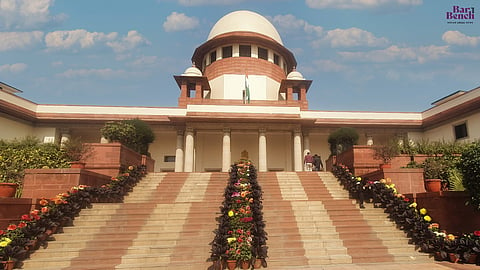Supreme Court
Litigation News
Supreme Court acquits two including a death row convict in rape and murder of 12-year-old
The Court said that it was yet another instance where 'lackluster and shabby investigation' had resulted in the failure to bring home guilt.

